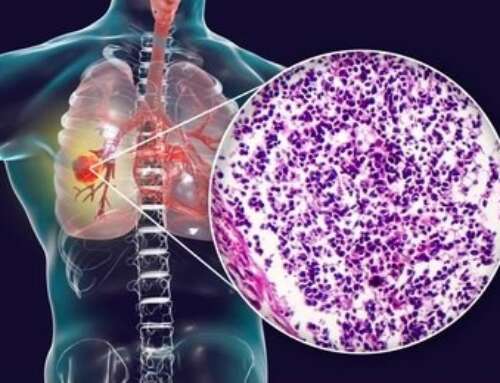
Small-cell lung cancer (SCLC) is an aggressive form of cancer that can be challenging to treat. However, with the right preparation and support, patients can feel more empowered throughout the treatment process. This guide aims to provide practical advice for those preparing for small-cell lung cancer treatment, offering insights into emotional readiness, physical preparation, and support systems.
- Embrace Your Emotions: The First Step to Mental Readiness
Before diving into physical preparations, it’s essential to acknowledge your emotional state. The diagnosis of small-cell lung cancer can be overwhelming, and understanding that it’s okay to feel uncertain or scared is the first step toward feeling prepared. Many patients experience a range of emotions, from fear and anxiety to anger and sadness. Take time to process these emotions and lean on your support network—whether it’s family, friends, or mental health professionals.
- Get Comfortable with Your Treatment Plan
Treatment for small-cell lung cancer typically involves a combination of chemotherapy, radiation, and sometimes surgery. The type of treatment you receive will depend on the stage and location of your cancer. It’s essential to familiarize yourself with the treatment plan and ask questions if something feels unclear. Having a clear understanding of what to expect will help you feel more in control and less anxious about the unknowns.
- Prepare Your Body for Treatment
Small-cell lung cancer treatment, especially chemotherapy, can take a toll on your body. Taking steps to optimize your health before treatment can improve your overall well-being during the process. Ensure you’re eating a balanced diet rich in vitamins, minerals, and proteins to strengthen your immune system. You should also discuss with your doctor any medications or supplements that might help reduce side effects during treatment, such as anti-nausea drugs or treatments for mouth sores.
- Arrange Support and Practical Help
During treatment, you may feel fatigued or experience side effects that make it difficult to carry out everyday tasks. One of the best things you can do is set up a support system to help with day-to-day activities. This could involve arranging for a family member to accompany you to appointments or organizing meal delivery services. Talk to your healthcare provider or local community for resources that can assist you during this time.
- Prepare Your Home and Environment
Your home should be a peaceful and comforting space as you go through treatment. Ensure that you have easy access to anything you may need, such as medications, snacks, and books to help pass the time. It might also be a good idea to keep blankets and pillows nearby for comfort if you experience fatigue. A calming environment can ease stress and help you focus on your recovery.
- Stay Informed, But Take It One Step at a Time
While it’s vital to stay informed about small-cell lung cancer treatment options, it’s equally important not to overwhelm yourself with too much information all at once. Trust that your medical team is guiding you on the right path and give yourself permission to take things one step at a time. As you progress in your treatment, you’ll naturally gain more understanding, so focus on the present and what you can do now to feel prepared.
Final Remarks:
Cancer treatment can feel like an uphill battle, but it doesn’t have to be a lonely one. At FLASS, we’re here to guide you through every step with personalized care and support. You’re not just a patient to us—you’re a person. Let us help you navigate your small-cell lung cancer treatment journey with the understanding, resources, and compassion you deserve. Take that first step and reach out today, because every journey starts with the courage to ask for help.


